Table of Contents
Debussy plays Debussy: his own works (between 1904 and 1913)
Please, subscribe to our Library.
If you are already a subscriber, please, check our NEW SCORES’ page every month for new sheet music. THANK YOU!
Clair de Lune
The third and most famous movement of Suite Bergamasque is “Clair de lune”, in D♭ major. It is written in 9/8 and marked andante très expressif. Its title, which means “moonlight” in French, is taken from Verlaine’s poem “Clair de Lune“. It is not to be confused with the two settings of the poem composed by Debussy for voice and piano accompaniment.

French composer Claude Debussy’s best-loved piano piece, Clair de Lune, has entered popular consciousness thanks to its regular performance. Its origins are complex and fascinating, combining influences from poetry, the music of the Baroque period (from around 1600 to 1750), and Impressionism, a style in music following on from that in visual arts.
The piece’s title, meaning “moonlight”, was added shortly before its publication in 1905 as the third movement of a four-part work called Suite Bergamasque. It was the same year Debussy’s beloved daughter, Claude-Emma, known as Chouxchoux, was born.
The title comes from a poem of the same name, published in 1869, by the Symbolist poet Paul Verlaine. Debussy had already set this poem for voice and piano twice before, along with 18 other Verlaine poems. The poem speaks of “au calme clair de lune triste et beau” (the still moonlight, sad and lovely).
It also describes “charmante masques et bergamasques”, which may have inspired the name of the whole suite. “Bergamasques” refers to masked festivals in the ancient Italian theatre tradition, common also through France, using archetypal peasant characters such as Harlequin, Columbine and Scaramouche from the town of Bergamo.
Debussy’s music was a turning point from the Romantic music that had dominated the 19th century to the music of the 20th century. When asked what rule he followed, he scandalized his harmony teachers by answering: “Mon plaisir” (My pleasure).
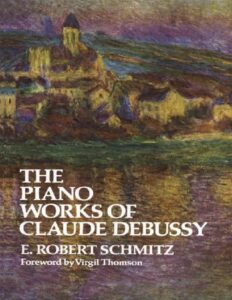
With fellow composer Maurice Ravel, Debussy is regarded as a leader of French Impressionism. Although Debussy disliked this term as applied to music, it is accepted now to refer to the composers’ use of harmony and texture in a way that recalls the light and color of Impressionist painting.
Debussy’s iconic orchestral piece La mer, also published in 1905, used Hokusai’s Great Wave on the cover, an artwork that directly inspired painters like Van Gogh. Another piece, Reflets dans l’eau (Reflections in the Water), seems to embody Impressionist qualities of glinting light and detached observation of nature rather than human participation, much as in Monet’s paintings of water lilies.
Poetry in music
The original title of Clair de Lune was actually Promenade sentimentale (Sentimental stroll), after a different Verlaine poem from an 1866 collection called Paysages tristes (Sad Landscapes). This poem is more likely to have been the inspiration for the music. The poem begins: “Le couchant dardait ses rayons suprêmes Et le vent berçait les nénuphars blêmes” (The setting sun cast its final rays And the breeze rocked the pale water lilies).
The vagaries of the breeze waft gently in the following passage with the instruction “tempo rubato”, a musical term allowing the performer to speed up and slow down the music at their discretion. This builds to an intense moment perhaps recalling a later passage in the poem:
Where the vague mist conjured up some vast Despairing milky ghost With the voice of teals crying As they called to each other, beating their wings.
That simplicity, even sparseness of texture, surrounds a central section of gently undulating passages marked to be played a little faster (“Un poco mosso”).
The passage subtly transforms meditative melancholy to a moment of exaltation by lifting the melodic material higher to the piano’s range, where, like the teals beating their wings, it seems to take flight.
Following on from this, the opening ideas reappear, entering more softly this time and descending gradually to more lush and subtly darker harmonies, colored by added notes.
French composer Claude Debussy’s best-loved piano piece, Clair de Lune, has entered popular consciousness thanks to its regular performance. Its origins are complex and fascinating, combining influences from poetry, the music of the Baroque period (from around 1600 to 1750), and Impressionism, a style in music following on from that in visual arts.
The piece’s title, meaning “moonlight”, was added shortly before its publication in 1905 as the third movement of a four-part work called Suite Bergamasque. It was the same year Debussy’s beloved daughter, Claude-Emma, known as Chouxchoux, was born.
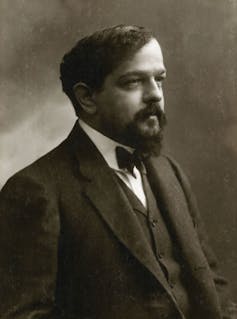
The title comes from a poem of the same name, published in 1869, by the Symbolist poet Paul Verlaine. Debussy had already set this poem for voice and piano twice before, along with 18 other Verlaine poems. The poem speaks of “au calme clair de lune triste et beau” (the still moonlight sad and lovely).
It also describes “charmante masques et bergamasques”, which may have inspired the name of the whole suite. “Bergamasques” refers to masked festivals in the ancient Italian theatre tradition, common also through France, using archetypal peasant characters such as Harlequin, Columbine and Scaramouche from the town of Bergamo.
Debussy’s music was a turning point from the Romantic music that had dominated the 19th century to the music of the 20th century. When asked what rule he followed, he scandalised his harmony teachers by answering: “Mon plaisir” (My pleasure).
With fellow composer Maurice Ravel, Debussy is regarded as a leader of French Impressionism. Although Debussy disliked this term as applied to music, it is accepted now to refer to the composers’ use of harmony and texture in a way that recalls the light and colour of Impressionist painting.
Debussy’s iconic orchestral piece La mer, also published 1905, used Hokusai’s Great Wave on the cover, an artwork that directly inspired painters like Van Gogh. Another piece, Reflets dans l’eau (Reflections in the Water), seems to embody Impressionist qualities of glinting light and detached observation of nature rather than human participation, much as in Monet’s paintings of water lilies.
Ancient style
Suite Bergamasque is one of a number of works by Debussy and his French contemporaries that paid homage to the “style ancien” (old style), which referred to the French Baroque period in the 17th and early 18th centuries. Referencing this style was popular after the mid-19th century.
It celebrated what was seen as the golden age of French music, and pushed back against what the French saw as the grandiosity of Wagner and declared French identity during a time of increasing militarisation in Germany. Two of the most noted composers of this golden age are Jean-Phillipe Rameau (1683-1764) and François Couperin (1668-1733), both of whom wrote suites for the keyboard instrument of the time, the harpsichord.
These suites had similar dance movements to Debussy’s Suite Bergamasque, which includes, along with Clair de Lune, a Prélude, a Menuet and a Passepied. In this context the original title makes more sense as a break between the Menuet and Passepied dances. Other works by Debussy making reference to this period include his Hommage à Rameau and his suite, Pour le Piano.
A sense of mystery
Despite this context and initial inspiration, Clair de Lune has no hint of actual Baroque style. It is unclear when this particular movement was completed but its sensual textures and poetic references to nature are closer to what we think of as musical Impressionism than the other movements of the Suite Bergamasque. Most of the suite was composed around 1890, but Debussy made substantial revisions in the year before its eventual publication in 1905. These included the name change from Promenade sentimentale to Clair de Lune.
Clair de Lune is treasured for its ethereal beauty and sense of mystery, so let’s not forget that we were forbidden by Debussy’s alter ego, Monsieur Croche, to pull our “jumping jacks to pieces”. Instead, perhaps we should heed Debussy’s more serious words:
We should be constantly reminding ourselves that the beauty of a work of art is something that will always remain mysterious; that is to say, one can never find out exactly “how it is done”. At all costs, let us preserve this element of magic peculiar to music. By its very nature, music is more likely to contain something of the magical than any other art.
Download the best classical music (incl. technical books) from our Library.
Browse in the Library:
| Artist or Composer / Score name | Cover | List of Contents |
|---|---|---|
| Alan Silvestri The Avengers |
 |
Alan Silvestri The Avengers |
| Alan Walker – Faded |
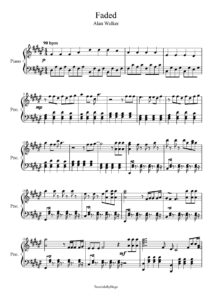 |
|
| Alan-Menken – Enchanted (Disney) |
 |
Enchanted Piano Vocal Guitar |
| Alanis Morisette – Hand In My Pocket | ||
| Alanis Morisette – Hands Clean | ||
| Alanis Morisette – Ironic | ||
| Alanis Morisette – Thank You | ||
| Alanis Morisette – That I Would Be Good | ||
| Alanis Morisette – Uninvited | ||
| Alanis Morisette – You Oughta Know | ||
| Alanis Morrissete You Oughta Know Sheet Music |
 |
|
| Alban Berg – Schliesse Mir Die Augen Beide (Musescore File).mscz | ||
| Alban Berg – Schliesse mir die Augen beide (Piano and voice Noten) |
 |
|
| Albeniz Isaac – Tango In D – Para Piano | Albeniz, Isaac – Tango In D – Para Piano | |
| Albeniz For Acoustic Guitar with Audio MP3 by Laurindo Almeida |
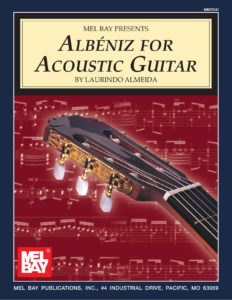 |
Albeniz for acoustic guitar with audio MP3 |
| Albeniz Suite Española V (Musescore File).mscz | ||
| Albéniz, Isaac – Capricho Catalán (Op. 165 no. 5) (Guitarra – Guitar) |
 |
|
| Albéniz, Isaac – Capricho Catalán (Op. 165 no. 5) (Piano) |
 |
|
| Albert Ammons 5 Boogie Woogie Piano Solos Sheet Music |
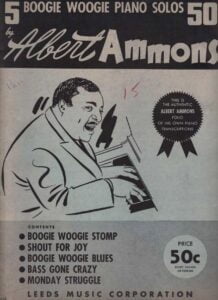 |
Albert Ammons 5 Boogie Woogie Piano Solos Sheet Music |
| Albert Ammons – Boogie Woogie Stomp |
 |
|
| Albert Ammons – Monday Struggle | Albert Ammons – Monday Struggle | |
| Albert Ammons – Shout For Joy | Albert Ammons – Shout For Joy | |
| Albert Ammons – Swanee River Boogie Woogie |
 |
|
| Albert Harris Sonatina Guitar Solo |
 |
|
| Albert Harris Variations And Fugue On A Theme Of Haendel (Guitar) |
 |
|
| Albert King The Very Best Of Albert King (Guitar TABs) |
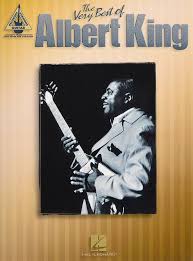 |
Albert King The Very Best Of Albert King |
| Albert Lee – The Best Of Albert Lee Guitar Tabs |
 |
Albert Lee – The Best Of Albert Lee Guitar Tabs |
| Albinoni – Adagio (Piano Solo Version) |
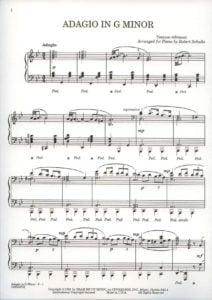 |
|
| ALBINONI-Adagio |
 |
|
| Album of Russian piano music | Russian music 1 | Russian music 2 |
| Album Of Scandinavian Piano Music By Louis Oesterle Vol. 1 (25 Pieces) 1902 |
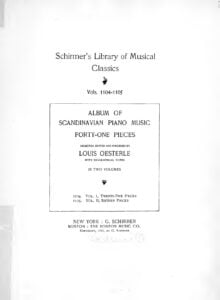 |
Album Of Scandinavian Piano Music By Louis Oesterle Vol. 1 (25 Pieces) 1902 |
| Alegre Magín – Americana (Guitarra) Habanera (Musescore File).mscz | ||
| Alegria Cirque Du Soleil Piano Vocal Guitar Chords Sheet Music |
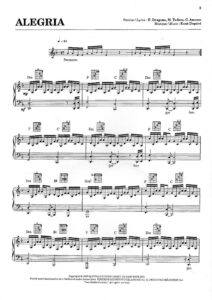 |
|
| Alejandro Sanz – Amiga Mia | ||
| Alejandro Sanz – La Margarita Dijo No | ||
| Alejandro Sanz – Y Si Fuera Ella | ||
| Aleksander Vertinskiy songbook |
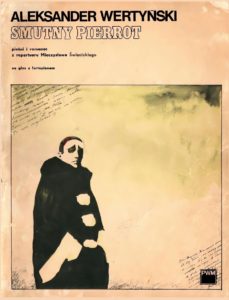 |
Aleksander Vertinskiy songbook |
| Alex North – Spartacus Love Theme (piano sheet music) |
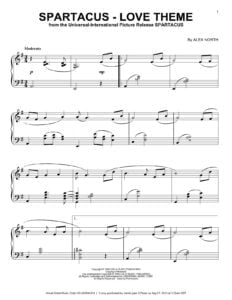 |
Alex North Spartacus Love Theme |
| Alex North Spartacus Love Theme (Lead sheet) | Alex Norrth SpArtacus | |
| Alexander Scriabin 24 Preludes Op. 11 1 To 12 Musescore File.mscz | ||
| Alexandra Streliski Burnout Fugue |
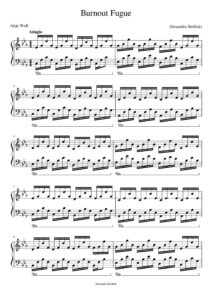 |
|
| Alexandra Streliski Le Noveau Dèpart |
 |
|
| Alexandra Streliski Par La Fenêtre De Théo |
 |
|
| Alexandra Streliski Plus Tôt |
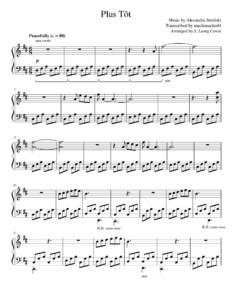 |
|
| Alexandra Strevisky Pianoscope |
 |
Alexandra Strevisky Pianoscope |
| Alexandre Desplat Elisas Theme Piano from The shape of water |
 |
|
| Alexandre Desplat The Shape Of Water Main Theme |
 |
|
| Alexandre Desplat – Lust Caution |
 |
Alexandre Desplat – Lust Caution |
| Alexandre Desplat – The Imitation Game |
 |
|
| Alexandre Desplat – The Meadow New Moon Piano solo Sheet Music |
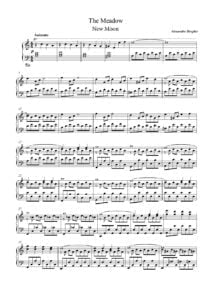 |
|
| Alexandre Desplat Almost A Kiss (From The Film New Moon) |
 |
|
| Alexandre Desplat and Lang Lang Kitty,s Theme from The Painted Veil | Alexandre Desplat and Lang Lang Kitty,s Theme from The Painted Veil | |
| Alexandre Desplat Brunos Theme From Suite Fran?aise |
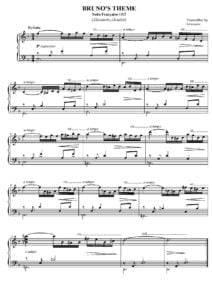 |
|
| Alexandre Desplat Full Moon (From The Film New Moon) |
 |
|
| Alexandre Desplat My Week With Marilyn – Marilyn’s Theme |
 |
|
| Alexandre Desplat Ost Godzilla Main Theme |
 |
|
| Alexandre Desplat The Danish Girl Theme Piano Solo |
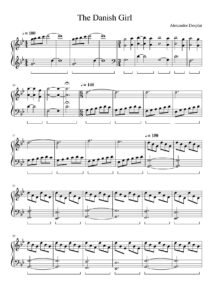 |
|
| Alexandre Desplat The Imitation Game |
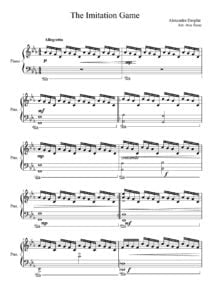 |
|
| Alexandre Desplat The King Speech |
 |
Alexandre Desplat The King Speech |
| Alexandre Desplat The Power Plant from Godzilla |
 |
|
| Alexandre Desplat The Wonder Of Life |
 |
|
| Alexandrov Piano Works Vol I |
 |
|
| Alexandrov Works for Piano Vol II |
 |
|
| Alexandrov Works for Piano Vol III Sonatas |
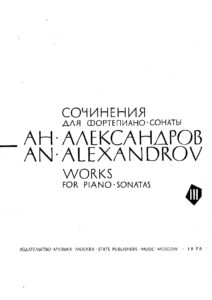 |
|
| Alexandrov, Anatoly 6 Preludes For Piano Op. 1 (1961) |
 |
|
| Alexis Ffrench – Bluebird |
 |
|
| Alfred Basic Adult Christmas Book Level 1 |
 |
|
| Alfred Basic Repertoire Level 4 |
 |
|
| Alfred Brendel A Pianists A-Z A Piano Lovers Reader Book |
 Andrew Hill 21 Piano Compositions Andrew Hill 21 Piano Compositions |
|
| Alfred’s Basic Adult Piano Course Level 1 |
 |
Lessons Alfred’s Basic Adult Piano Course Level 1 |
| Alfred’s Basic Adult Piano Course Level 2 |
 |
Lessons Alfred’s Basic Adult Piano Course Level 2 |
| Alfred’s Basic Adult Piano Course Level 3 |
 |
Lessons Alfred’s Basic Adult Piano Course Level 3 |
| Alfred’s Basic Piano Level 2B |
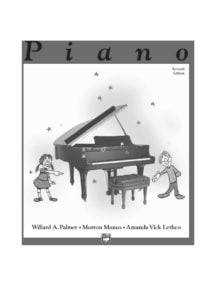 |
|
| Alfred’s Basic Piano Level 4 Jazz Rock Course |
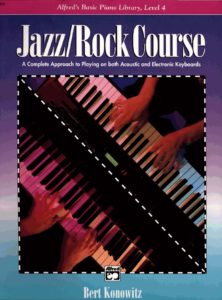 |
|
| Alfred’s Basic Piano Library Essentials Of Jazz Theory Book 2 |
 |
Alfred’s Basic Piano Library Essentials Of Jazz Theory Book 2 |
| Alfred’s Basic Piano Library – Solo Book Complete Levels 2 & 3 for the later beginner |
 |
Alfred’s Basic Piano Library – Solo Book Complete Levels 2 & 3 for the later beginner |
| Alfred’s Basic Piano Library – Top Hits! Solo Book – Level 4 |
 |
|
| Alfred’s Basic Piano Library Essentials Of Jazz Theory Book 1 |
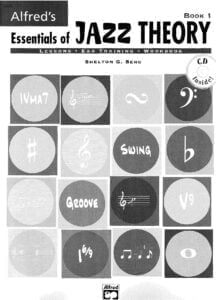 |
Alfred’s Basic Piano Library Essentials Of Jazz Theory Book 1 |
| Alfred’s Basic Piano Library Essentials Of Jazz Theory Book 3 |
 |
Alfred’s Basic Piano Library Essentials Of Jazz Theory Book 3 |
| Alfred’s Basic Piano Library Lesson Book Level 3 |
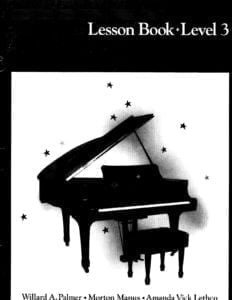 |
|
| Alfred’s Teach Yourself To Play Guitar Everything You Need To Know To Start Playing The Guitar! (with Tablature) |
 |
|
| Alfred’s Essentials Of Music Theory, Complete (Andrew Surmani, Karen Farnum Surmani Etc.) Sheet Music |
 |
|
| Ali and Nino (Dario Marianelli) | ||
| Alice Coltrane Monument Eternal (book) The Music of – by Franya J. Berkman |
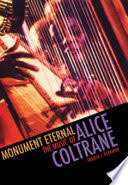 |
|
| Alice In Chains Dirt Full album Guitar TAB with lyrics |
 |
Alice In Chains Dirt Full album Guitar TAB with lyrics |
| Alicia Keys – A Woman’s Worth | Alicia Keys – A Woman’s Worth | |
| Alicia Keys – A Womans Worth | ||
| Alicia Keys – And I | ||
| Alicia Keys – As I Am (Songbook) |
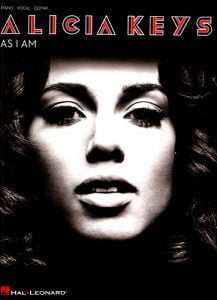 |
ALICIA KEYS SONGBOOK |
| Alicia Keys – Butterflyz | ||
| Alicia Keys – Diary | ||
| Alicia Keys – Fallin | ||
| Alicia Keys – Fallin’ (Sheet Music – Piano) | Alicia Keys – Fallin’ (Sheet Music – Piano) | |
| Alicia Keys – Goodbye | ||
| Alicia Keys – How Come You Dont Call Me | ||
| Alicia Keys – If I Aint Got You |
 |
|
| Alicia Keys – Impossible | ||
| Alicia Keys – Never Felt This Way | ||
| Alicia Keys Diary Song Book |
 |
ALICIA KEYS DIARY SONGBOOK |
| Alicia Keys The Element Of Freedom Songbook |
 |
ALICIA KEYS |
| Alicia Keys Unplugged |
 |
ALICIA KEYS UNPLUGGED |
| Alkan, Charles Valentin Concerto For Solo Piano 1st Movement Opus 39 No. 8 In G Minor (Piano Solo Reduction) |
 |
|
| All 4 One – I Can Love You Like That | ||
| All 4 One – I Swear | ||
| All American Folk Complete Sheet Music Editions Volume One (Creative Concepts Publishing Corp.) |
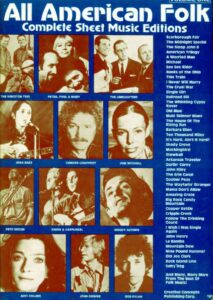 |
All American Folk Complete Sheet Music Editions Volume One (Creative Concepts Publishing Corp.) ( |
| All Blues For Jazz Guitar Comping Styles Chords And Grooves by Jim Ferguson Guitar Tablature |
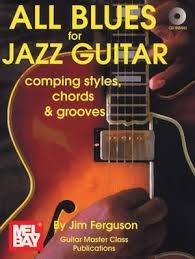 |
All Blues For Jazz Guitar Comping Styles Chords And Grooves by Jim Ferguson Guitar Tablature |
| All Blues Soloing For Jazz Guitar – Jim Gerguson Play Along (Book + audio MP3) with Tablature |
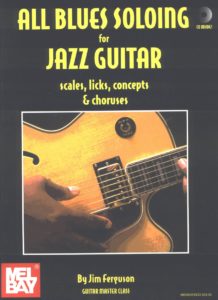 |
All Blues Soloing jazz guitar |
| All By Myself – Celine Dion (Musescore File).mscz | ||
| All I Want For Christmas Is You (Musescore File).mscz | ||
| All Of Me – Jazz Standard Stride Piano arr. Gerald Marks and Seymour Simons | All of me (Gerald Marks and Seymour Simons) Jazz Piano Solo arr. sheet music | |
| All Of Me – Jazz Standard Stride Piano Arr. Gerald Marks And Seymour Simons (Musescore File).mscz | ||
| All Of Me Fingerstyle Guitar TABs By Lucas Brar Jazz Standard (Gerald Marks and Seymour Simons) | All Of Me Fingerstyle Guitar TABs By Lucas Brar Jazz Standard | |
| All Of Me Gerald Marks & Seymour Simons 1931 Jazz Standard (Vintage sheet music) | All Of Me Gerald Marks & Seymour Simons 1931 Jazz Standard (Vintage sheet music) | |
| All Of The Jazz Standard Vol. 1 |
 |
All Of The Jazz Standard Vol. 1 |
| All Of The Jazz Standard Vol. 2 |
 |
All Of The Jazz Standard Vol. 2 |
| All Saints – Never Ever | ||
| All Sondheim Vol I Music and lyrics |
 |
All Sondheim Vol I Music and lyrics |
| All Sondheim Vol II Music and lyrics |
 |
All Sondheim Vol II Music and lyrics |
| All Sondheim Vol III Music and lyrics |
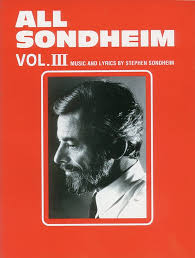 |
All Sondheim Vol III Music and lyrics |
| All Sondheim Vol IV Music and lyrics |
 |
All Sondheim Vol IV Music and lyrics |
